This article is more than 5 years old.
The five ZSR Librarians who attended ACRL 2017 have created this joint blog post where we each list our top takeaways! The post is long, but worth the read! We hope you enjoy this streamlined approach.
Roz
I always find ACRL to be the best of all conferences I attend. The smaller scale and focus on Academic Libraries just makes it much more manageable and useful. There was so much great content here but I’ll list my top takeaways:
- From the Keynote by David McCandless (who was crazy awesome): ‘Interesting’ is what we call something that is beautiful to the brain. Here is his Ted Talk page – worth a listen if you have never heard him talk. I so wanted Mary Scanlon to hear his keynote! We were also treated to keynotes from Roxanne Gay and Librarian of Congress, Carla Hayden – rock stars all!
- I went to a panel on reservable, longer term project space in libraries that was really interesting. Libraries had, by various means, carved out some rooms that could be used by students working on long-term projects. So rather than 2-hour slots, student groups could apply to use the spaces for weeks, months, even semester-long on projects either for a class for their own edification. There was a lot to love about the ideas these schools gave including ways for librarians to be more embedded in these longer projects as mentors and resources over the course of a project. Bet even more relevant, I think, was the recognition that the library is the perfect place on campus to offer these kinds of spots as it is a place that students from all disciplines feel comfortable gathering and it’s not likely other departments would make their spaces available to all students or interdisciplinary groups. Duke, Virginia Tech and Georgia Tech all had done different things but it was great hearing about them and thinking about the possibilities we might have here as we look to renovations, etc.
- Not so much a takeaway as an observation. From the ‘How many hands are needed on deck’ talk about staffing public services desks and tying it all back to the ACRL Value of Academic Libraries initiative. My big takeaway from this (which is probably the 20th such talk I’ve heard in my 24 years in libraries) is that no one has figured out a magic formula for who should staff public services desks because it absolutely must be a decision based on the culture of your library and your institution. All three places that spoke in this talk (Baylor, University of Arkansas, and Georgia State) were massive public institutions that all pulled librarians completely off the desk. And they can all point to gains that they have made in other areas like instruction, embeddedness, etc. But they were less able to talk about what gets lost in that scenario (in one – subject specialists are in another building behind a locked door – so no direct student access to them at all). I was struck by what one of the speakers said about the difference between Value (as in the value of academic libraries to student success) and Values (as in what are the values of your institution). Seems to me that the sweet spot is in staying true to your values as a way to bring value to the larger enterprise. But maybe that’s just me…..
- Maybe the most interesting session I attended was an ACRL town hall with a lobbyist. She had been an ALA lobbyist and is now one for the National Education Association (NEA). Among her most useful nuggets of advice were that emails actually do get counted and do work for contacting your representatives, don’t take for granted that the lobbyists employed by membership organizations are going to advocate for the issues you think are important – they can only advocate for what YOU tell them to and they can’t do it all themselves – there just aren’t enough of them. So here is ALA’s page on lobbying and it has great resources about how to contact the ALA Washington Office and how to be your own lobbyist for your causes!
- The poster sessions were, as always, some of the best content in the whole conference. I took pictures of several that I want to go back and revisit including one on the Human Library, one on an interactive project about censorship and community building called ‘The Thin Red Line’, using data visualizations of collections and budgets to engage faculty in discussions about collections, and using chat transcripts to improve website usability.
- Finally, I’ll close with a few notes from vendors.
- As you may have seen, Chicago University Press has announced a new edition of the Chicago Manual of Style (to be released on September 12);
- JSTOR and Project Muse are both in the eBook landscape now (but Muse does much better vendor events to explain this to you);
- JSTOR is also in the subject database landscape with JSTOR Sustainability. Interesting concept. Still new. They have some other ones coming along so worth keeping an eye on, perhaps.
- I went to an interesting breakfast about Alma analytics and found out from a vendor friend at ExLibris that we would be able to stick with Summon if we go to Alma – their first Summon/Alma client is going live now.
Mary Beth
ACRL conferences are both the best and the worst of conferences. Because so much of what is going on in them is relevant to the academic librarian, one usually has more than one relevant session to choose from. And as if this choice isn’t sufficiently frustrating, one also is meeting with colleagues, wanting to catch up with others met at previous conferences, desiring to continue to chat with new acquaintances while also needing to get to the next “thing” on your agenda. This was mitigated somewhat by travelling with others from ZSR so we could do a great deal of calculated “divide and conquer” so we covered much more of the conference this way. Some of my takeaways:
- From a session on colocating service desks. One of the panelists was discussing how valuable it is to have people from auxiliary services like the Writing Center at their desk. They had experience with assessment that (owing to them having to constantly “prove” their worth) people in the library benefitted from. It helped to increase the “culture of assessment” they had been striving for.
- In implementing textbook programs, academic libraries have found that the bookstore is willing to partner with libraries. They too want to solve the cost of textbooks “problem.”
- Open Educational Resources have been expanding in use all across academia. In one case, the Business Library at a Salt Lake City college decided to use a business model to encourage faculty to change the method they used to disseminate course material. They could chose to use an e-book, use OER or put their readings on e-reserve, but every one of them had to pick something to do differently.
- A very interesting session on Open Science was introducing all of the “open” ways that research is carried out and disseminated. They provided so many tools on methods faculty can use to get their research vetted outside of the usual submitting to peer reviewed journal. From places on the open web to store your code, (github), and places to put the pre-print of articles (bioRxiv) this session opened my eyes to many challenges with which science faculty and science researchers are contending today.
- When doing a poster session, it’s handy to have a conversation starter to approach people who are otherwise just staring at your poster trying to figure it out. For the poster that Meghan Webb and I presented on ZSR Bootcamp: (Far From) Basic Training for Student Employment Success my conversation starter was “So, do you do any student training?” This always got people going on their student training difficulties, and we could then discuss how the Bootcamp has helped address with many of the challenges we’ve had. The poster was well received, and the conversations were fruitful.
Kathy
First, I have to say just how much fun it was to travel with my ZSR (and Elon) peeps! I’ll try not to repeat too much of what has already been said about the amazing keynotes and other sessions from the conference.
- I think I have to start by highlight reel at the end by talking about Carla Hayden’s closing keynote. Her enthusiasm for her role as the Librarian of Congress was incredibly evident in the way she talked the incredible wealth and diversity of materials available in the LOC collection and her enthusiasm to be able to share that with the American people. For example, when ComiCon comes to DC (called Awesome Con there), the LOC will be participating by bringing out the library’s comic book collection, which includes the full run of Luke Cage comics. The LOC is also hosting a Disco Night and other events to celebrate Gloria Gaynor’s song, I Will Survive, being added to the National Recording Registry (and Dr. Hayden will apparently be a backup singer…). Her love for her job and for the librarian community was infectious, and it was a great note on which to end the conference.
- There was not much history-related content in the sessions, but I did have an informal meet-up with some other history librarians from Purdue University-Fort Wayne, Temple University, Emory, UC-Berkeley, and Marquette to talk about our roles as history librarians. I enjoyed hearing about their experiences at their own institutions, and several also shared their experiences attending disciplinary conferences, including the American Historical Association and the Organization of American Historians, and we talked about ways that we as librarians could get more involved and have more a presence in those organizations. As I strive to learn more about this subject area, this network has become a great resource!
- One of my areas of interest is the scholarship of teaching and learning, so I was excited to attend the panel session “Anchoring our Practice: Scholarship of Teaching and Learning in Academic Libraries” (nautical themes abounded at the conference). The five librarians who presented shared how they got into SoTL work, shared resources and best practices, ideas for collaboration partners on campus, where to go to find and publish SoTL research, and information on webinars they will be offering later this spring. In addition, they shared the CFP for a book on SoTL for academic librarians that will be published in 2018, so if you or someone you know is interested in SoTL, this would be a great place to send your ideas!
- The Featured Program, “Don’t Fall For It,” was given by Justin George, a former reporter for the Baltimore Sun who now works for the Marshall Project. (And, for fans of Serial, he worked on the first season.) His perspective as a reporter allowed me to see fake news through a different lens. He talked about the way that aggregation and circular reporting has created a problem, because erroneous stories are given credibility through redundancy. He shared that fake news has always existed but that the rise of outlets like Facebook are really what contributed to its rise in 2016, and that purveyors of fake news are a disparate group, not just “Russians” or “right wing.” As a journalist, he said, he doesn’t ask you to just believe him. He asks you to hold his stories up and evaluate them. I loved the evaluation acronym he shared from the New York Times: “IMVAIN.” He also used to work for PolitiFact and shared the names of specific people you can follow on Twitter to help you stay alert to and debunk fake stories.
- I also attended a panel on “Resilience, Grit, and Other Lies: Academic Libraries and the Myth of Resiliency.” The speakers shared the origins of the term (first used in engineering to describe the behavior of a spring) and how it was adopted by psychology and ecology and then by education. We often use the word “resilient” in a positive sense to describe people who are succeeding despite difficult times, but the authors’ perspective on this term made me view it differently. By placing the focus on the people and their inherent quality of “resilience,” we place the onus on them, rather than on the systemic inequalities or structural problems that they are facing. In the case of libraries, we see this in our marketing efforts, which are almost all defensive in nature. As one of the panelists argued, it shouldn’t be “Save Libraries” but “Libraries Save.” As a manager, one of the panelists also talked about how it’s important to create a culture where people don’t need to be resilient, where there is space to fail, and people have the tools and resources they need to recover. I found this particularly interesting in light of the recently proposed budget cuts.
In addition to our conference fun, Mary Beth, Meghan, and I also managed to make it out to the National Aquarium on Friday before the all-conference reception, where we saw dolphins, sharks, poison frogs, birds, and all kinds of amazing creatures. (And, if anyone is planning to head over to Baltimore in the near future, tickets are half price on Fridays!)
Meghan
This was my first time attending (and first time presenting) at ACRL, and I was very impressed with the quality of presentations, and the innovation and creativity and hard work that I observed from library professionals across the country. So many great takeaways from this conference, but here are my top 5:
- Sara Thompson (Oregon State Univ.- Cascades), Kirsten Hostetler (Central Oregon Community College), Rochelle Smith (University of Idaho) presented a panel presentation entitled “A Post-apocalyptic Guide to Information Literacy: Survival Skills for Information Seeking after Graduation”, which centered around how we can help develop info literacy skills (and encourage lifelong learning) for students to negotiate a post-graduation info landscape. I found the research they shared related to postgraduate information needs and available resources very insightful– a survey they conducted in 2015 of 1,061 recent graduates demonstrated: most (57%) of respondents encountered information needs related to their personal lives (specifically, ‘how to’ info dealing with hobbies and money management), information needs centering around the workplace and career development were a close second; 70% of respondents noted a high reliance on co-workers, search engines and books (!) for post-graduate info needs; 50% of respondents used their public library systems; the greatest challenge for respondents was finding time to address information needs and 50% of respondents reported the lack of access to academic library resources (and affordable information resources) challenging. The panel discussion offered excellent ideas for how to prepare students for their transition into a postgraduate information landscape and further outreach to our alumni to aid their potential information needs.
- Several sessions, poster presentations & lightning talks offered creative outreach & programming ideas that I would love to consider developing here at ZSR:
- “Reaching University Students via Partnerships with Non-academic Departments”: Joan Serpico from Rider University shared how their library collaborated with the University Career Center, Writing Center, and Student Affairs department to broaden their exposure to students and provide relevant resources to assist these campus organizations with program-specific needs.
- “Speed-Geeking: Introducing Graduate Students to Library Services”: Christina Chan-Park from Baylor University shared a program that uses a “speed-dating” format to quickly introduce graduate students to the variety of library services and resources available to them. A very efficient (and fun!) way to engage patrons with lesser-known library resources. Chan-Park suggested this type of program is ideal for 30-150 participants, and attention should be made to the event space (you’ll want to mindful of how much noise carries in certain spaces and how this could affect the “speed-geeking” conversations).
- “Creating Interesting Library & Archival Displays for Next to Nothing”: Corbin Taggart from Southern Nazarene University presented his work in creating 3D displays to promote library collections, events, and services. He uses “everyday objects” and finds creative ways to “upcycle” materials that would otherwise be thrown away to create visually appealing (and sometimes interactive) displays to catch attention.
- “Students at the Helm: A Model for Mutually Beneficial Collaborative Outreach”: Julie Arsdorf from University of Wisconsin-Madison shared their library’s recent collaboration with an undergraduate student marketing club to assist with collecting market research and aid in developing strategic recommendations for student outreach.
- In my role as an instruction librarian, I am considering ways to engage my students with creative information literacy projects. Silvia Vong’s (University of Toronto) poster presentation “Dropping Rose Petals in a Canyon: Using Zines to Teach Undergraduate Students that ‘Information Has Value’” offered one such creative project opportunity. Vong developed a Zine lab program to give students an opportunity to produce informative zines and engage students in larger discussions about the challenges with creating and disseminating information.
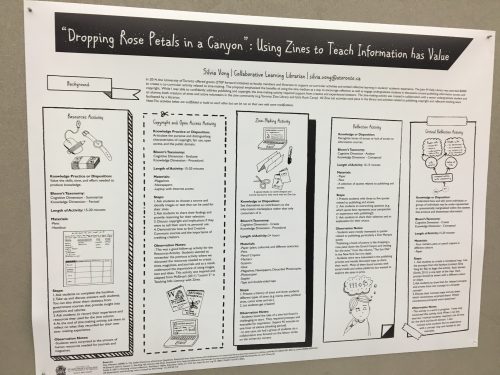
Silvia Vong’s poster presentation, “Dropping Rose Petals in a Canyon: Using Zines to Teach Undergraduate Students that ‘Information has Value'” I also got several great ideas from “Sea Change: Transforming the Student Experience Through Community Engagement and Service Learning”, which offered excellent suggestions and best practices in utilizing service learning projects for information literacy programs.
- “Ready or Not? Pressing Trends, Challenges and Tech for Libraries” offered a panel discussion surrounding key trends and themes from the NMC Horizon Report (2017 Library Edition). Of the 6 big (meta-categories) outlined, there was lively discussion surrounding “rethinking library spaces”, themes related to fostering authentic learning and discovery/patrons as creators, and (2 “wicked challenges”= those that are complex to even define, much less address) “economic and political pressures” and “embracing the need for radical change” (I grabbed a few print copies of this report if anyone wants to borrow it, btw).
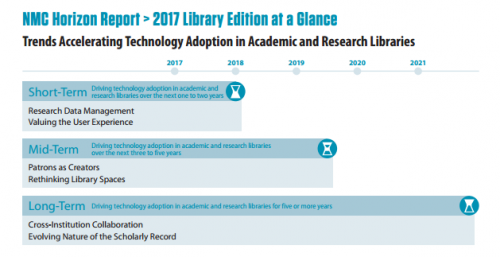
- I’m jumping on the bandwagon to reinforce the awesomeness that was the selection of keynote speakers at ACRL 2017: David McCandless, Roxane Gay (Bad Feminist, Difficult Women and forthcoming Hunger [2017] and How To Be Heard [2018]), and our Librarian of Congress, Dr. Carla Hayden!! Seriously, all of these speakers were inspiring (and at times, life-affirming for librarians everywhere).
Hu
As others have mentioned, the ACRL 2017 conference keynote speakers: David McCandless, Roxane Gay, and Carla Hayden, and Chair’s Choice Program speaker, Verna Myers, were all incredibly powerful and motivating to hear. Even conference chair and 2017-18 ALA President, Jim Neal, inspired us with his call to action! As with every ACRL conference I’ve attended, there are always presentations that fill me with great ideas to bring back to ZSR. Below are my top five presentations.
- “Building Community and Enabling Student Success: 5 Reasons Why Graduate Students Love Thesis Boot Camp” – I cannot wait to implement a “thesis boot camp” at ZSR! These programs provide graduate students with a time and place to write, mixed in with support session from the Writing Center and the Graduate School on a wide array of topics. These boot camps are often held over semester breaks, when graduate students are still on campus and have time to write. I also learned about the upcoming “Transforming Libraries for Graduate Students” National Conference in 2018!
- “Librarians are in the House: Unconventional Strategies for Outreach to your Campus Community” – Dartmouth has a new house model that creates community with programming and events. Unlike other house models where students select housing based on particular interest, this model focuses on campus partnerships, including house librarians.
- Lightning Talks – These are always a safe bet! Several of the presentations touched on ideas we do at ZSR. There was one idea in particular I’m excited to explore called “Speed Geeking” (think speed dating with a focus on library orientation!) Students move from station to station learning quick hacks for using the Library.
“What’s Social Justice Got To Do with Information Literacy?” – This was the last session I attended prior to Dr. Carla Hayden’s closing keynote, and rather than dash out in the middle to get a good seat, their presentation on weaving social justice issues into instruction kept me engaged right up until the end! These four medium to large, private, Catholic institutions worked together to examine the power structures that control information and created instruction materials with a social justice focus, available on an open access platform. - “Charting a New Course: New Horizons in For-credit Information Literacy Instruction in the Disciplines” – I would be remiss if I didn’t mention Roz’s panel! This group of five librarians all described their varying models of for-credit info-lit for upper-level undergraduates. Roz moderated the panel and described our LIB 100-200 classes and the history behind our program. I should also mention that Mary Beth and Meghan did an amazing poster about the ZSR Library’s Boot Camp model for New Student Assistants Training, and their poster session was very well attended.
Five librarians from ZSR, and one from Elon, plus our luggage filled our 2017 Chrysler Pacifica rental van to near capacity, but with such a fun group, we had a great time traveling, filling the trip with email catch up, impromptu meetings, and fun conversation! Even the epic traffic around Washington DC didn’t slow us down (too much)! I’m already looking forward to ACRL 2019 in Cleveland!
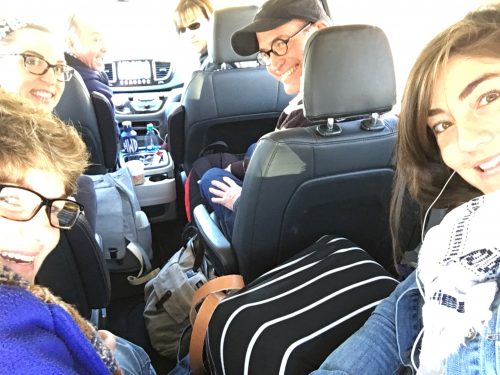
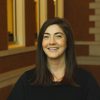
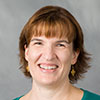
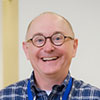
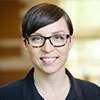
5 Comments on ‘ZSR @ ACRL 2017’
I read it all the way through! Awesome recap people. Let’s do it again.
Sounds like a great conference with many good take aways! We will have two new project spaces on Wilson 6 after this summer, so I am sure Molly and Carrie would like your insights, Roz! I also love the thesis boot camp idea. It looks like you all attended sessions that have relevance back here at ZSR. Thanks for this thoughtful and meaty post!
Our approach of “divide and conquer” really worked! I read the entire post and learned new things about the sessions I couldn’t attend! This was a great conference and a fun travel group! I’m already looking forward to Cleveland 2019!
I feel like I went to ACRL without the pesky conference cold! Especially curious about what you learned from “What’s Social Justice Got To Do with Information Literacy?” Hu – we’ll have to get coffee soon!
Jam-packed with ideas, tips, and leads! (I went immediately to the Horizon Report from this!)